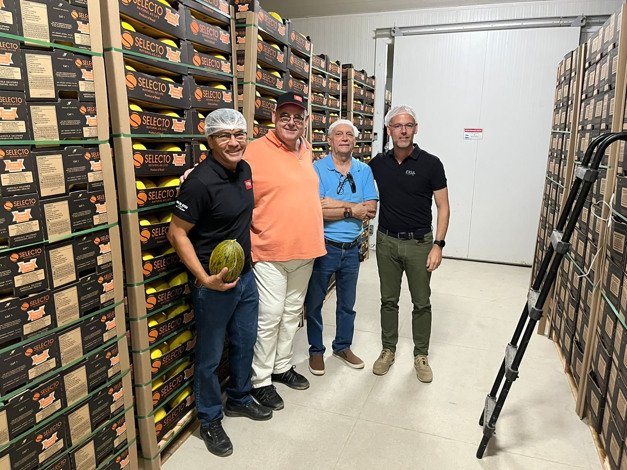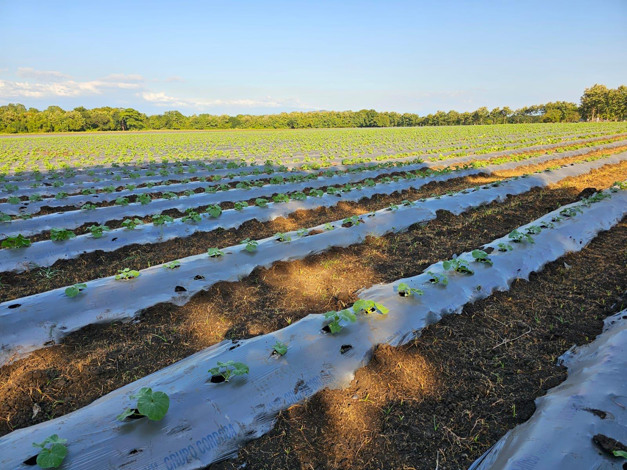Exsa Europe has taken a strategic stake in its Brazilian melon supplier Agricola Salutaris, a company with a 400-450 hectare home-grown melon farm, including packing station and harvesting machinery. "Our strategy is to be as close to the crop as possible with our key products. This has already worked out well with grapes in South Africa, Namibia and Egypt, among others; we also have our own cultivation of melons in Costa Rica and to this we are now adding our participation in Brazil," says Eddy Kreukniet. "This allows us to extend our season with our own production and even better align the import programmes of both countries and further strengthen our place in the chain. I am happy with this step we are taking backwards in the chain. With the strength of commercial coaching from Europe, we also hope to take the grower further forward again."

The Brazilian melon season got off to an early start this year. "There is good demand in the market. Spain did make some stabs in recent weeks and you can see that in the quality of the melons in the shops, whether yellow, Cantaloupe, or watermelons. Retailers are looking for certainty at the moment and that is mainly to be found outside Spain, because they are really on their last legs, especially with watermelons. However, the season does continue for a few more weeks with the Piel de Sapo and yellow melons from La Mancha."

Making a prediction about the crop in Brazil, Eddy says, remains a tricky story, given the representativeness of the statistics. "What we hear from the seed breeders is that there should be a similar acreage planted as last year. But the difference in the weather being good or bad can cause a 20% higher or lower harvest for melons. So, melons are typically a product where you can only take stock at the end of the process. For now, weather conditions are good and the first part of the harvest looks promising. Only the planting of Galia and Cantaloupe melons is lower in Brazil, due to the higher cost price, so we certainly expect a stable market for these types."
 For more information:
For more information:
Eddy Kreukniet
Exsa Europe
Tel: +31 88 735 0003
Mob: +31 620 25 78 11
info@exsaeurope.com
www.exsaeurope.com
